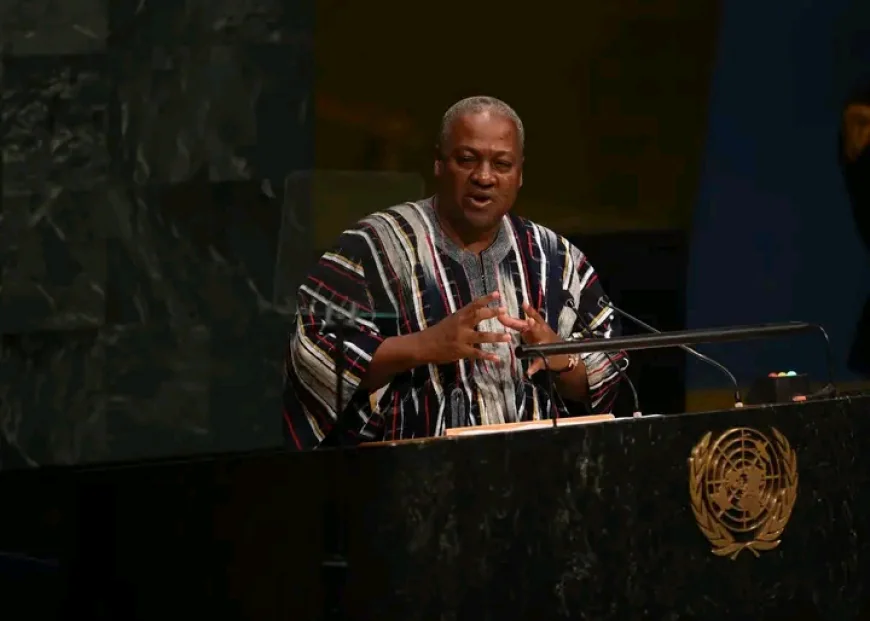Mahama denounce outdated UN system, calls for veto reform
Mahama Renews Africa’s Call for UN Security Council Seat

President John Dramani Mahama has renewed calls for Africa to be granted a permanent seat on the United Nations Security Council (UNSC), insisting that the current global governance structure is outdated and unjust.
Delivering Ghana’s address at the 80th United Nations General Assembly in New York on Thursday, 25 September, Mahama said reforms to the Security Council were long overdue and should no longer be delayed.
“Thirty years after Mandela made this same request, we are still asking: if not now, then when?” he told world leaders, referencing Nelson Mandela’s landmark 1995 speech to the UN.
Mahama criticised the dominance of post-World War II powers, describing their near-exclusive control of the Security Council as fundamentally unfair.
“The most powerful post-World War II nations are still being rewarded with an almost totalitarian guardianship over the rest of the world,” he observed. “If this were truly the case, a continent as large as Africa with its numerous UN Member States would have at least one permanent seat on the Security Council.”
He also condemned the sweeping veto powers enjoyed by the Council’s five permanent members—China, France, Russia, the United Kingdom and the United States—arguing that their unchecked authority undermines global justice.
“There must be a mechanism for the General Assembly to challenge a veto. No single nation should be able to exercise an absolute veto to serve its own interests in a conflict,” Mahama said.
The Ghanaian leader stressed that Africa’s demand for representation has been ignored for three decades, despite repeated appeals. His insistence echoed Mandela’s plea, underscoring the continued marginalisation of a continent that represents more than one billion people and 54 UN Member States.
Mahama further broadened his call to include reforms in the global financial system, arguing that it remains skewed against Africa. He urged a “reset of the global financial architecture” to ensure fairness and equity for developing nations.
“With Africa excluded from decision-making, we continue to be deprived of fair representation in multilateral financial institutions,” he cautioned.
Mahama’s address added momentum to long-standing calls for a more inclusive and representative UN system, with Africa at the heart of the debate over 21st-century global governance.


